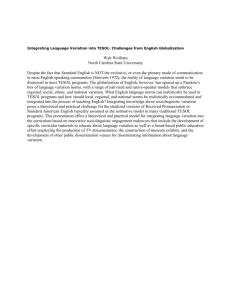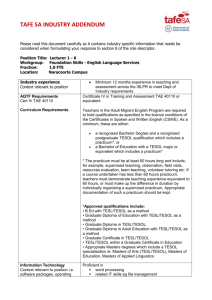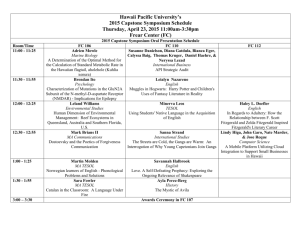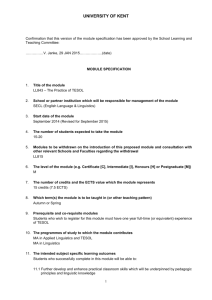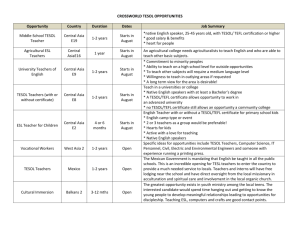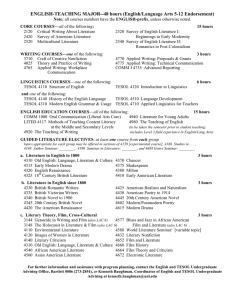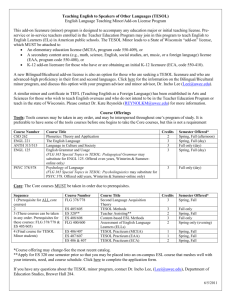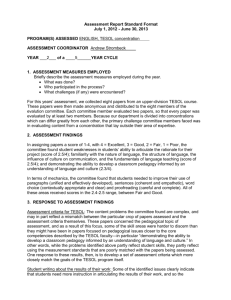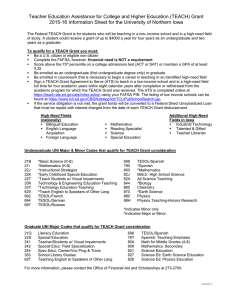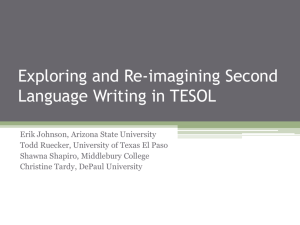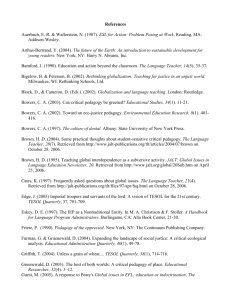TESL104_Apr2009 - Heartland Community College
advertisement
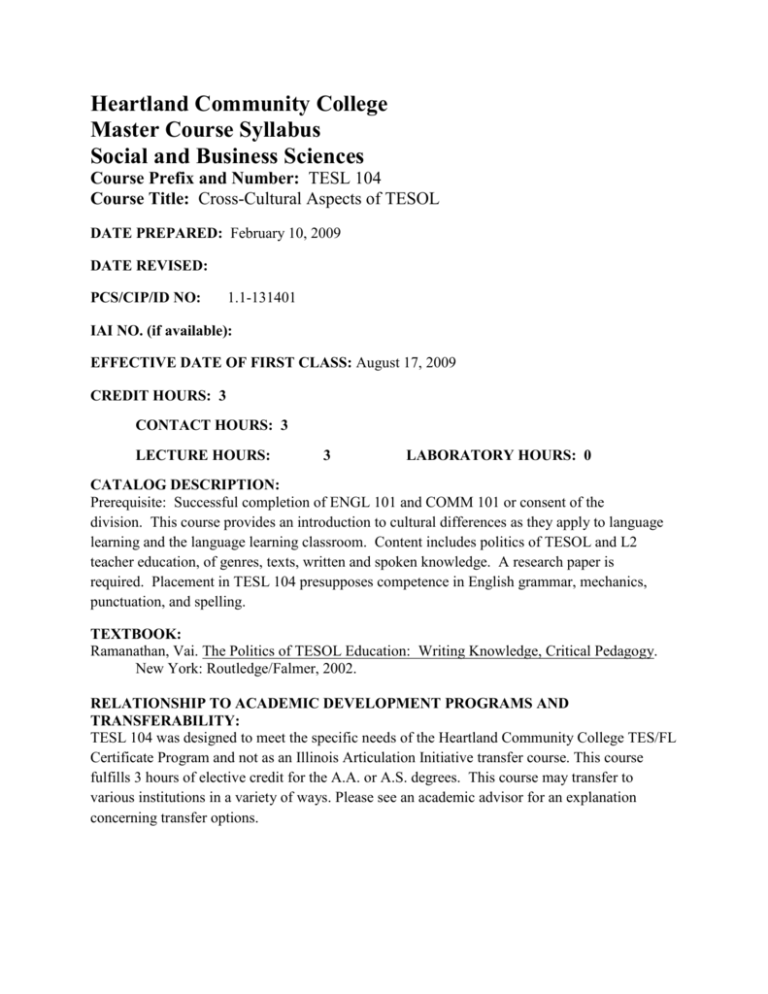
Heartland Community College Master Course Syllabus Social and Business Sciences Course Prefix and Number: TESL 104 Course Title: Cross-Cultural Aspects of TESOL DATE PREPARED: February 10, 2009 DATE REVISED: PCS/CIP/ID NO: 1.1-131401 IAI NO. (if available): EFFECTIVE DATE OF FIRST CLASS: August 17, 2009 CREDIT HOURS: 3 CONTACT HOURS: 3 LECTURE HOURS: 3 LABORATORY HOURS: 0 CATALOG DESCRIPTION: Prerequisite: Successful completion of ENGL 101 and COMM 101 or consent of the division. This course provides an introduction to cultural differences as they apply to language learning and the language learning classroom. Content includes politics of TESOL and L2 teacher education, of genres, texts, written and spoken knowledge. A research paper is required. Placement in TESL 104 presupposes competence in English grammar, mechanics, punctuation, and spelling. TEXTBOOK: Ramanathan, Vai. The Politics of TESOL Education: Writing Knowledge, Critical Pedagogy. New York: Routledge/Falmer, 2002. RELATIONSHIP TO ACADEMIC DEVELOPMENT PROGRAMS AND TRANSFERABILITY: TESL 104 was designed to meet the specific needs of the Heartland Community College TES/FL Certificate Program and not as an Illinois Articulation Initiative transfer course. This course fulfills 3 hours of elective credit for the A.A. or A.S. degrees. This course may transfer to various institutions in a variety of ways. Please see an academic advisor for an explanation concerning transfer options. COURSE OBJECTIVES (Learning Outcomes): After completing this course, the student should be able to: General Assessment Education Learning Outcome Recognize meanings and values in his or her CO5 own culture; recognize meanings and values of other cultures; take similarities and differences into account during the communication process In-class collaborative activities and participation, quizzes, reflective introduction, research paper, annotated bibliography, final exam Analyze, synthesize, and evaluate different cultural perspectives Conversation partner work, interviews, research paper, final exam DI5 CO5: Students communicate ethically through monitoring their behavior and interactions with others. DI5: Students consistently and characteristically approach diversity issues in a manner that exemplifies respect for and appreciation of difference. COURSE/LAB OUTLINE: Unit 1: Analyzing cultures (differences, similarities, language as cultural medium, ethnocentrism) Unit 2: Cross-cultural teaching and learning (language interference, ESL/bilingual education/total immersion, LI linguistic patterns in spoken and written English (L2)) Unit 4: Introduction to critical pedagogy and the social nature of texts, authors, and the field of TESOL (power of language, issues of identity as they relate to L1 and L2, social inequity in education, educational systems, stable/dynamic systems, critical language awareness, cultural imperialism) Unit 4: Politics of TESOL (discourse communities, discourses, social construction of knowledge, ideology, status of TESOL, English as an international language) Unit 5: Cultural analysis (traditions, beliefs, values, history, language, stereotyping, discrimination, oppression) Unit 6: Benefits of cross-cultural teaching and learning (humanitarian, educational, economic) METHOD OF EVALUATION (Tests/Exams, Grading System): Participation and Assignments which may include but are not limited to conversation partner work, interviews, homework, quizzes, and oral presentations 20-60% Research paper written through process, includes an annotated bibliography of sources and a reflective introduction 20-60% Final Examination comprehensive assessment of course content 20% Final grades will be determined according to the following scale: 90 to 100% = A 80 to 89% = B 70 to 79% = C 60 to 69% = D 59% and below = F REQUIRED READING AND WRITING: Students will meet with a conversation partner and write a reflective journal about this practice. Students will conduct interviews and provide oral presentations relating this information to the class. A 10-pg. (2500 words), 5-source paper is required which includes a reflective introduction and competent use of a documentation style. Quizzes will be given during the semester. Students will complete a comprehensive final examination.
